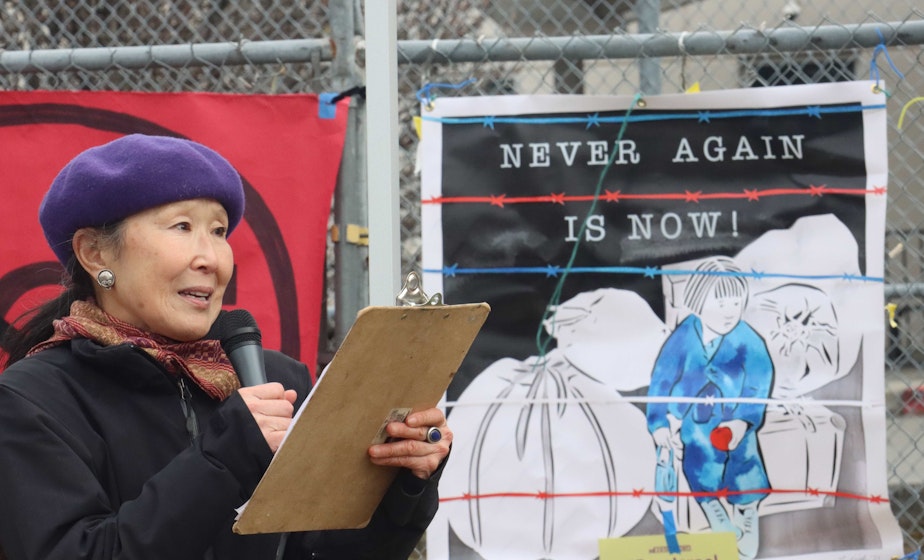Marking the 80th anniversary of Executive Order 9066

The U.S. government forced 227 Japanese immigrants and Japanese Americans out of their homes and businesses on Bainbridge Island 80 years ago this month.
They had to leave because of Executive Order 9066.
President Roosevelt signed the order in February 1942, which targeted all Japanese immigrants and their descendants living on the West Coast.
The families were removed from their homes, and sent to what the government called "relocation camps" until the end of World War II. Bainbridge Island was the first community in the nation to be disrupted by the order.
On this anniversary, community members observed "The Day of Remembrance" for the signing of the order at the Puyallup fairgrounds, the only relocation center in Washington state.
KUOW's Natalie Newcomb spoke to survivors about their memories of life in the camp. They want to make sure Americans will never be detained or incarcerated because of their race again.
Soundside producer Noel Gasca also spoke to Paul Chihara and Kaoru Ishibashi, two musicians with Seattle roots. They composed new pieces about the executive order.
Sponsored
Hear Soundside's full coverage of this story by clicking the audio above.






